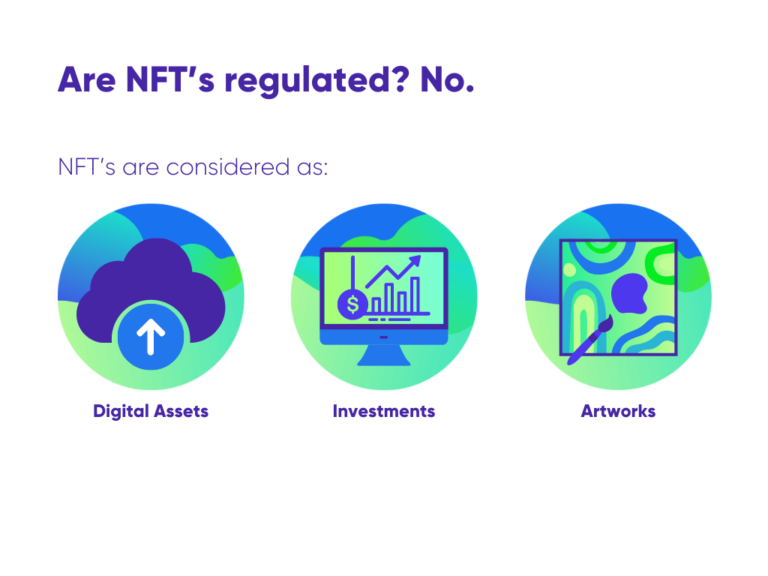11 April 2022, 17:22
Tagline
11 April 2022, 17:22
Tagline
NFT is hot !
As Abu Dhabi rolls out draft recommendations for NFT trading we will have a short look in this Blog into Money laundering through NFts.
ADGM has published on 21 st of March its first consultation paper for Virtual Assets. Comments on the proposed framework can be submitted by 20 of May 2022. As the FSRA recognizes the growing relevance of NFT markets within the wider markets for digital assets. And while the FSRA is not proposing to establish a formal regulatory framework for NFTs it is also open to NFT activities. And while transactions in NFTs may also trigger the requirement to comply with AML and Sanctions Rules which is not only to register as a DNFBP (Designated Non Financial Business or Profession) we will loo here into AML for NFTs.
Currently there’s currently no data on NFTs which are used for money laundering. As there is a call now for NFT marketplaces to implement strict(er) AML and KYC standards. It is worth to look into the exposure for NFt’s in terms of money laundering. We at DX are more than sure we soon will hear from nameable examples of anyone who did money laundering with NFTs.
A non-fungible token (NFT) is a non-interchangeable unit of data stored on a blockchain, a form of digital ledger, that can be sold and traded. The difference to Cryptocurrencies lies in the details that each token is uniquely identifiable which NFTs differs from blockchain cryptocurrencies. Mostly NFTs have been used as a speculative asset,
NFTs are pretty young. Since 2017 multiple NFT projects have launched. Since than an increases public awareness and public attention into it. The NFT market experienced rapid growth during 2020. In the 3 months of 2021, more than US$200 million were spent on NFTS. In the early months of 2021 interest in NFTs continues to increased after a number of high-profile sales and art auctions.
NFTs, as with other blockchain securities and with traditional art sales, can potentially be used for money laundering. Auction platforms for NFT sales may face regulatory pressure to comply with anti-money laundering legislation.
Gou Wenjun, the director of the Anti-Money Laundering Monitoring and Analysis Centre for the People’s Bank of China, expressed that NFTs could “easily become money-laundering tools.” Gou elaborated that there is increasing unlawful exploitation of various new cryptographic technologies, and that illicit actors often self-identify as innovators of the financial technology sector.[88]
A February 2022 study from the United States Treasury assessed that there was “some evidence of money laundering risk in the high-value art market,” including through “the emerging digital art market, such as the use of non-fungible tokens.”[89] The study considered how NFT transactions may be a simpler option for laundering money through art by avoiding the transportation or insurance complications in trading physical art. Several NFT exchanges were labeled as virtual asset service providers that may be subject to Financial Crimes Enforcement Network regulations.
It depends.

New Compliance regulations will soon come up. NFT Compliance and AML are major areas of key importance.
AML Compliance for NFTs and the question How to prevent money laundering in the NFT market are important topics. So far, This march FATF published a draft guide on risk-based approach to virtual assets and virtual asset providers.
The FATF originally published this Guidance in June 2019 when the FATF finalised changes to its Standards to clearly place anti-money laundering and countering the financing of terrorism (AML/CFT) obligations on VAs and VASPs. In July 2020, the FATF committed to update this Guidance.
It is important to Kickstart your AML Program and Implement AML Processes and the right Tech.
While legislative and compliance requirements are in their infancy.
The Growth of in the NFT Space is significant. The global market for non-fungible tokens hit $ 42 bn last year. Which of course increases the AML Risk for NFT Marketplaces. Addressing that risk is of course important. Regulatory frameworks are on the rise so is the requirement to comply with the AML requirements.

08.08.2022
An overview of recent AML developments in the UAE.
Get access
15.10.2021
The introduction of 6AMLD regulations aims to reduce financial crimes.
Get access
27.07.2021 AML Compliance
Uncovering the PEP and Sanctions Lists and Global Regulation
Get access